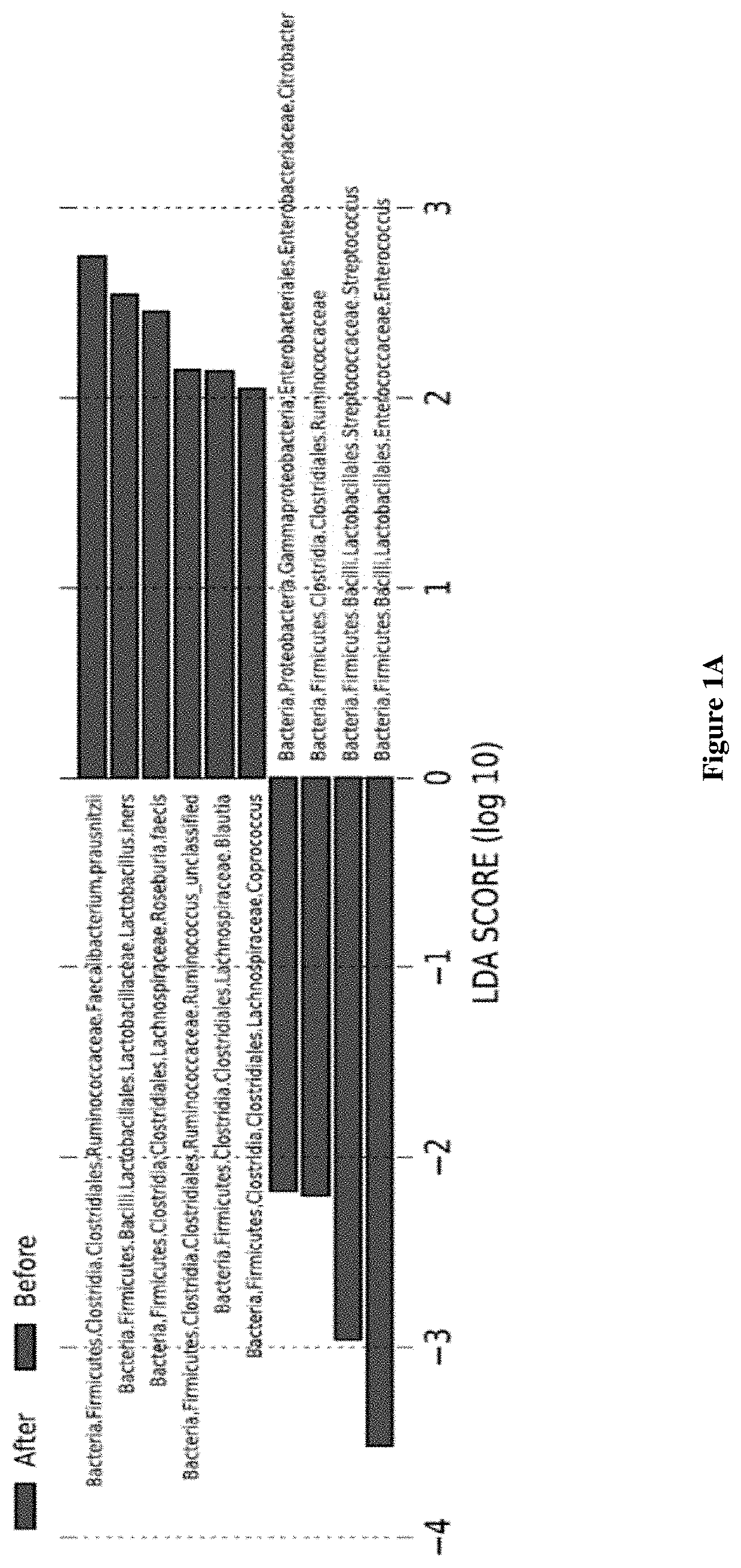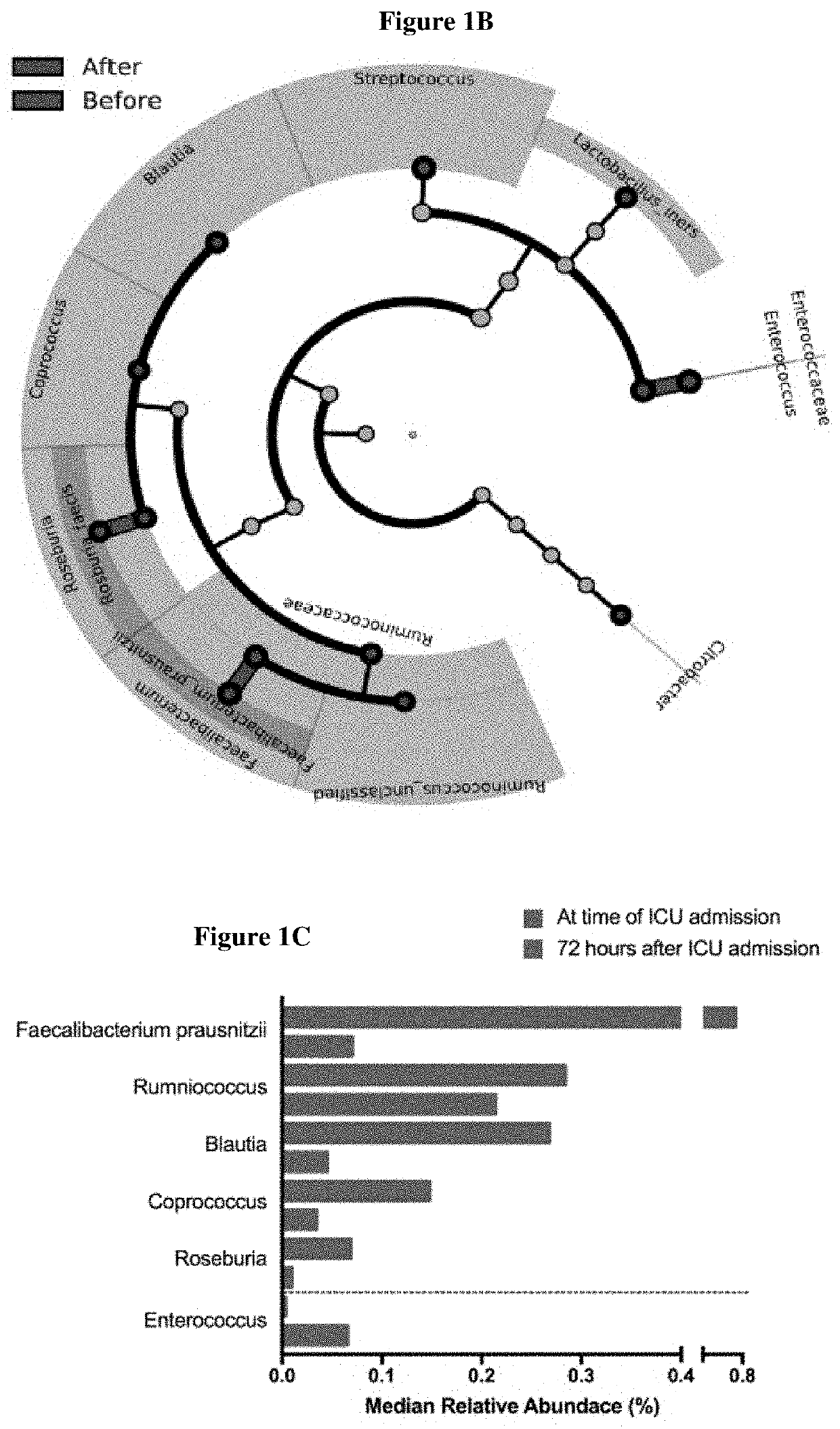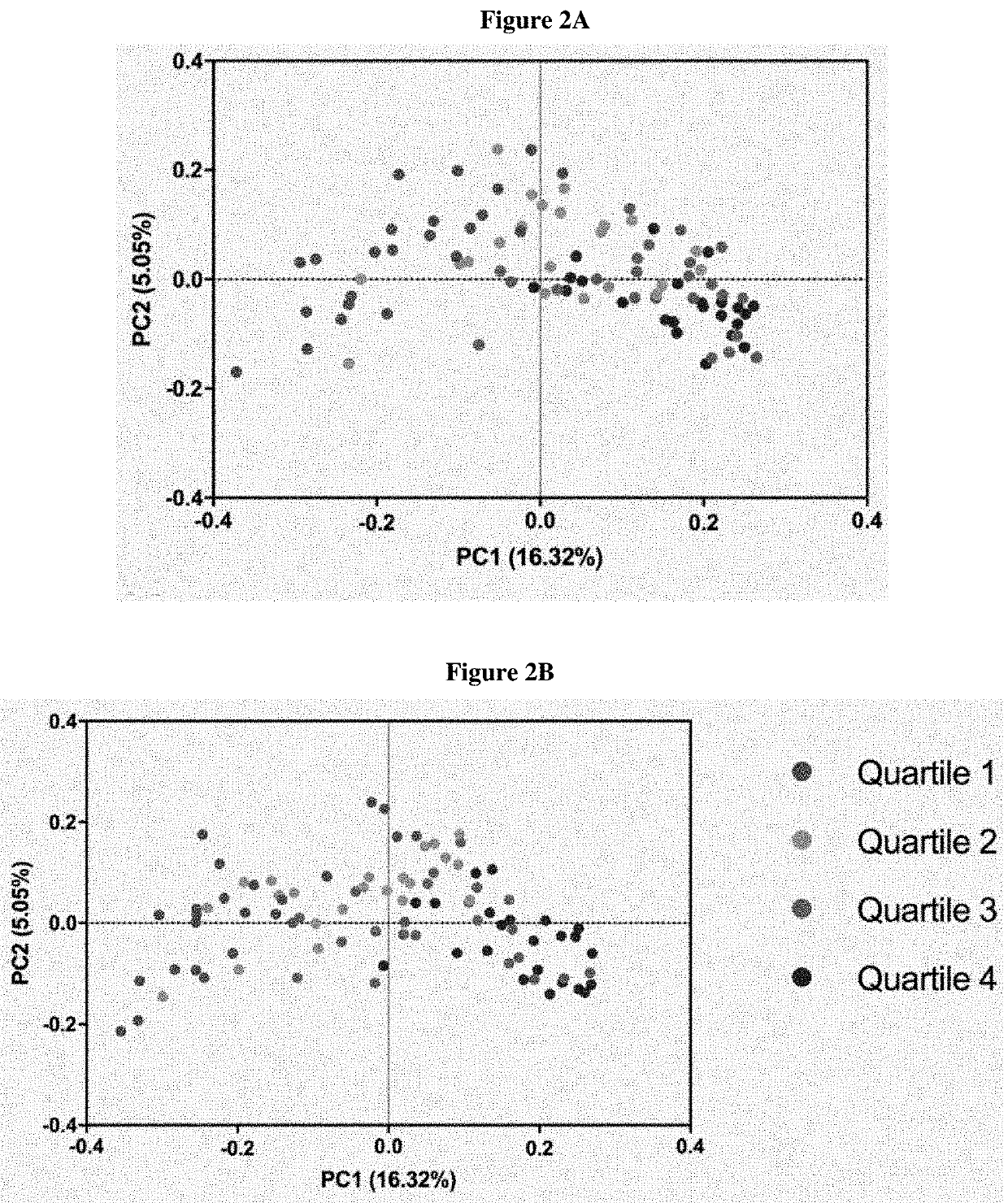Inulin for preventing antibiotic resistant infection and pathogen colonization
a technology of antibiotic resistance and inulin, which is applied in the direction of antinoxious agents, drug compositions, organic active ingredients, etc., can solve the problem of losing normal colonization resistan
- Summary
- Abstract
- Description
- Claims
- Application Information
AI Technical Summary
Benefits of technology
Problems solved by technology
Method used
Image
Examples
example 1 rapid
Loss of Clostridial Clusters IV and XIVa in the ICU Associates with an Expansion of Pathogens
[0180]Commensal gastrointestinal bacteria resist the expansion of pathogens and are lost during initial treatment in the intensive care unit (ICU). A diverse and stable gastrointestinal flora has been associated with decreased risk for colonization with organisms such as vancomycin-resistant Enterococcus (VRE) and for subsequent infections. However, which specific bacteria may contribute most to the diversity and stability of the gut microbiome during critical illness is unknown. We performed a prospective, ICU based study to determine within-individual changes in the gut microbiome during initial treatment in the ICU and how these changes associate with overall gut microbiome diversity and stability. Deep rectal swabs were performed on adult ICU patients within 4 hours of ICU admission and exactly 72 hours later, and analyzed using 16S rRNA gene sequencing and bacterial culture for VRE. Mic...
example 2
Inulin for the Prevention of Antibiotic Resistant Infection or Pathogen Colonization in the Intensive Care Unit
[0267]Antibiotic resistance represents an emerging healthcare crisis, both in the United States and abroad. Multidrug resistant (MDR) bacterial infections are a leading cause of morbidity, death, and healthcare-associated costs.1-3 Nowhere is this more important than in the intensive care unit (ICU), where over half of all infections are MDR4 and where sepsis from MDR bacteria confers 10-20% absolute increased mortality.5-7
[0268]Antibiotic resistance in the ICU is fundamentally a problem of the human gastrointestinal microbiome. The gut microbiome is the critical reservoir for the bacteria and plasmids that encode antibiotic resistance genes.17-19 The normal gut microbiota prevents colonization and subsequent infection with MDR organisms through competition for scarce resources and other mechanisms,20 as demonstrated by the ability of fecal microbiota transplant (FMT) to r...
example 3
Inulin for the Prevention of Antibiotic Resistant Infection or Pathogen Colonization in the Intensive Care Unit
[0506]Chicory-derived inulin will be used to prevent antibiotic-resistant infections in the intensive care unit or in other populations at high risk for such infections. The prebiotic fiber inulin is a non-digestible plant-derived polysaccharide and is a key nutrient source for beneficial short-chain fatty acid (SCFA)-producing bacteria that live in the human colon. In animals and humans, inulin increases gut SCFA content, induces bacteriocin production, and improves gut barrier function. The hypothesis is that inulin supplementation in critically ill patients will result in higher levels of SCFA-producing Clostridia, which in turn will decrease gastrointestinal pathogen colonization and lower risk for multidrug resistant bacterial infections. Inulin has been studied extensively in humans, including critically ill humans, and appears safe and well tolerated.
Formulation of t...
PUM
| Property | Measurement | Unit |
|---|---|---|
| time | aaaaa | aaaaa |
| treatment time | aaaaa | aaaaa |
| time | aaaaa | aaaaa |
Abstract
Description
Claims
Application Information
 Login to View More
Login to View More - R&D
- Intellectual Property
- Life Sciences
- Materials
- Tech Scout
- Unparalleled Data Quality
- Higher Quality Content
- 60% Fewer Hallucinations
Browse by: Latest US Patents, China's latest patents, Technical Efficacy Thesaurus, Application Domain, Technology Topic, Popular Technical Reports.
© 2025 PatSnap. All rights reserved.Legal|Privacy policy|Modern Slavery Act Transparency Statement|Sitemap|About US| Contact US: help@patsnap.com



